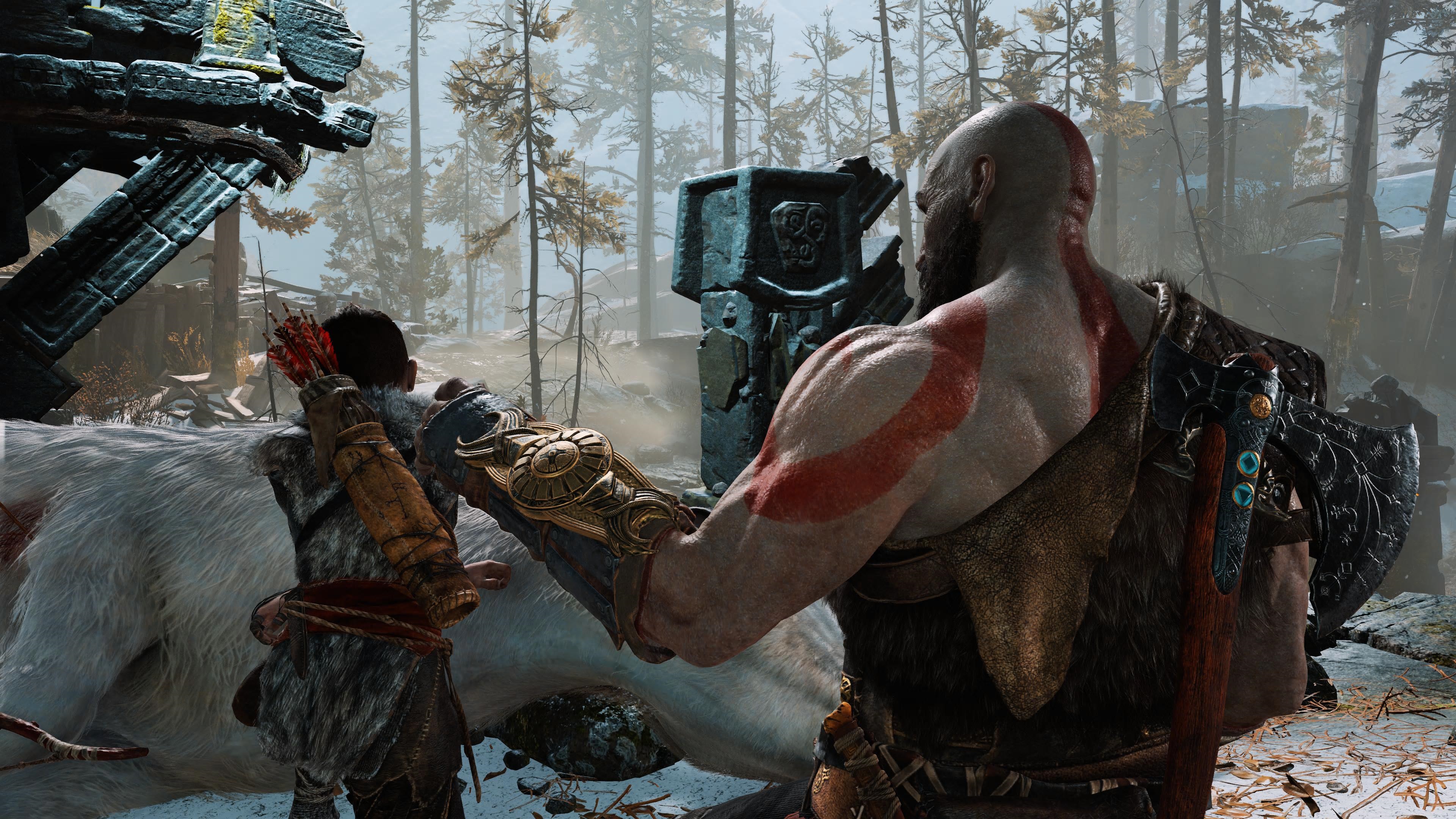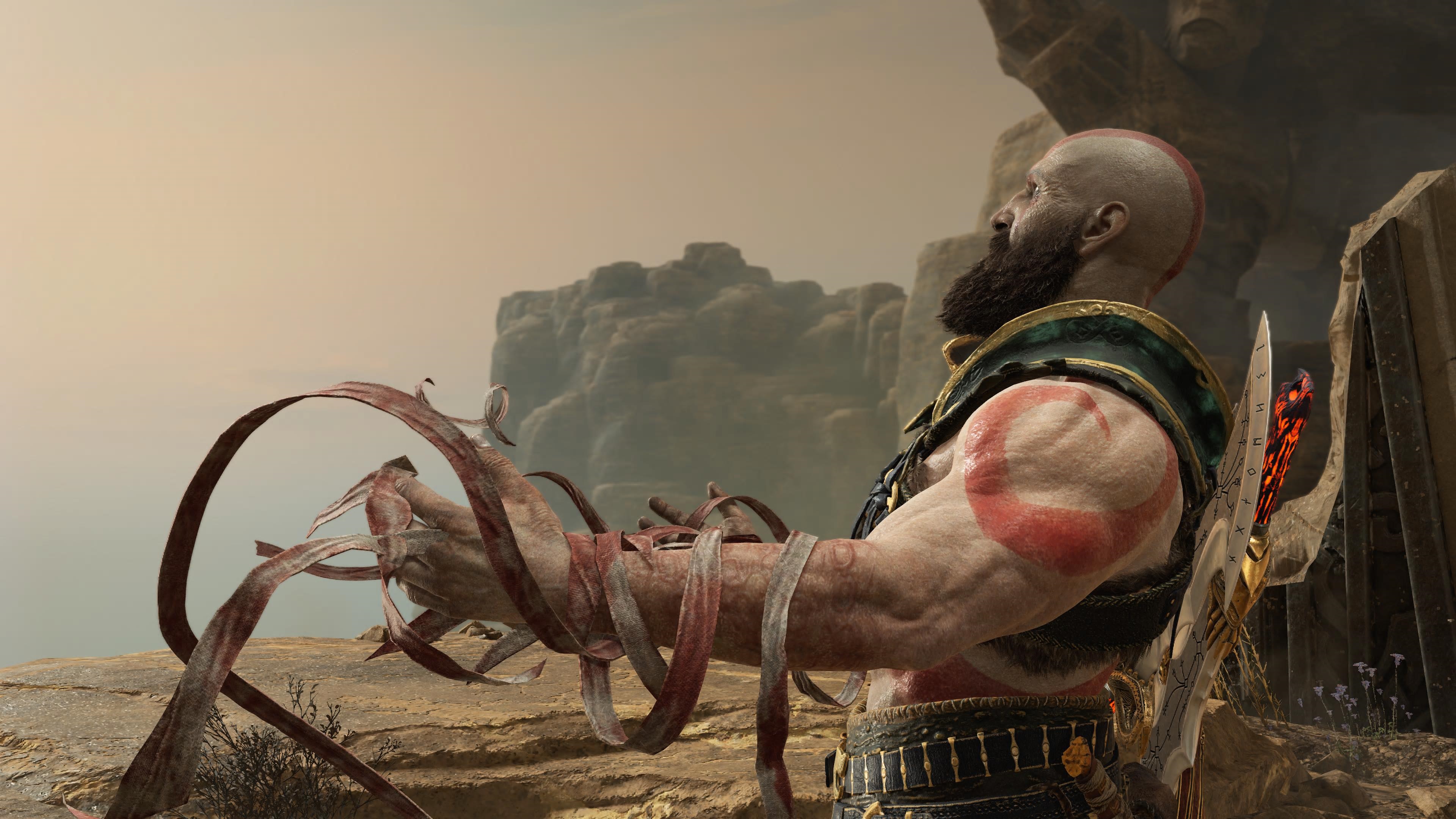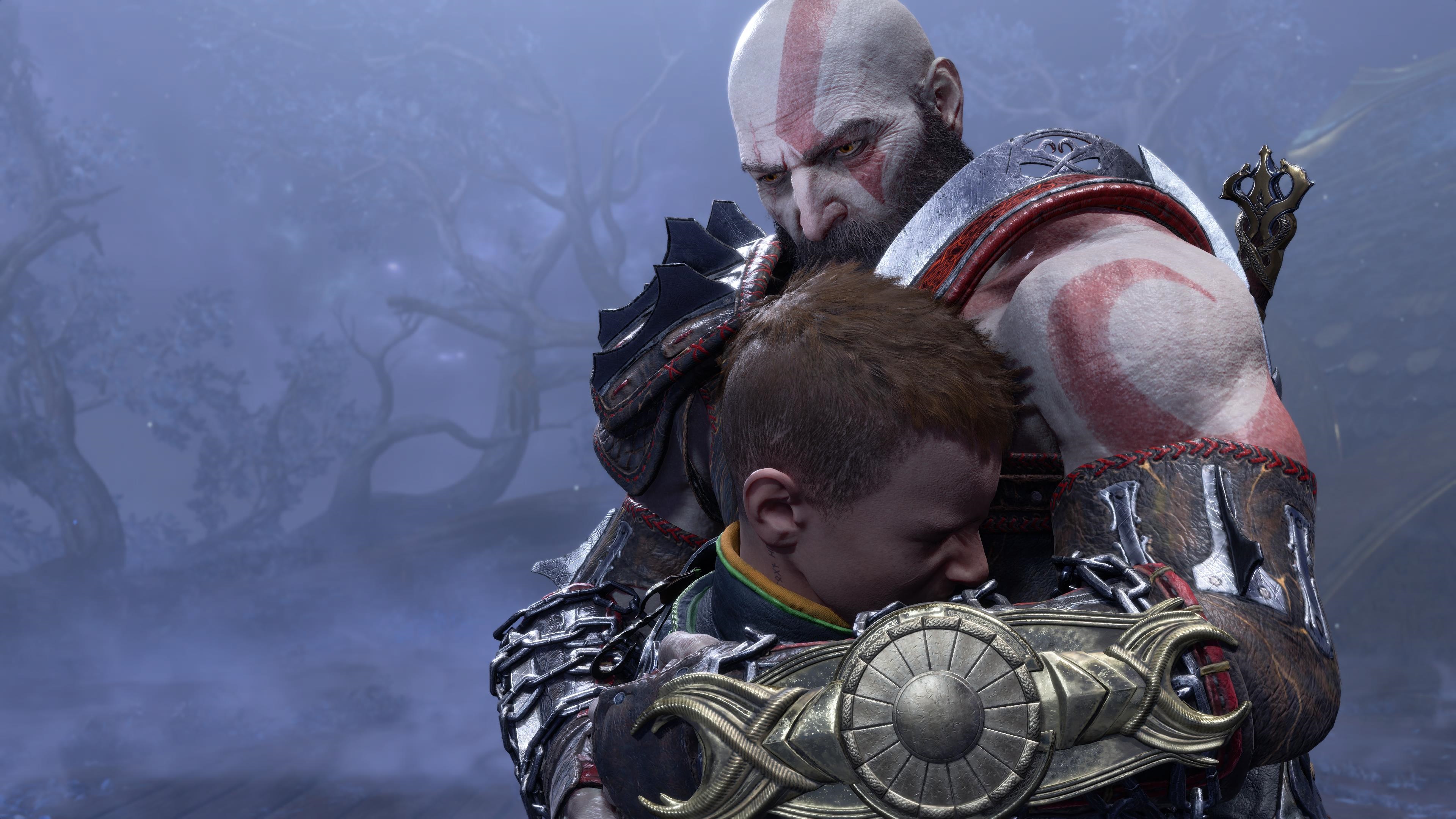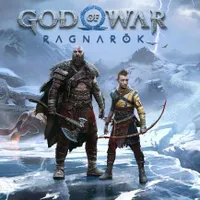God of War Ragnarök's best moments are commentary on masculinity
There's more to growth than just being a sad dad.
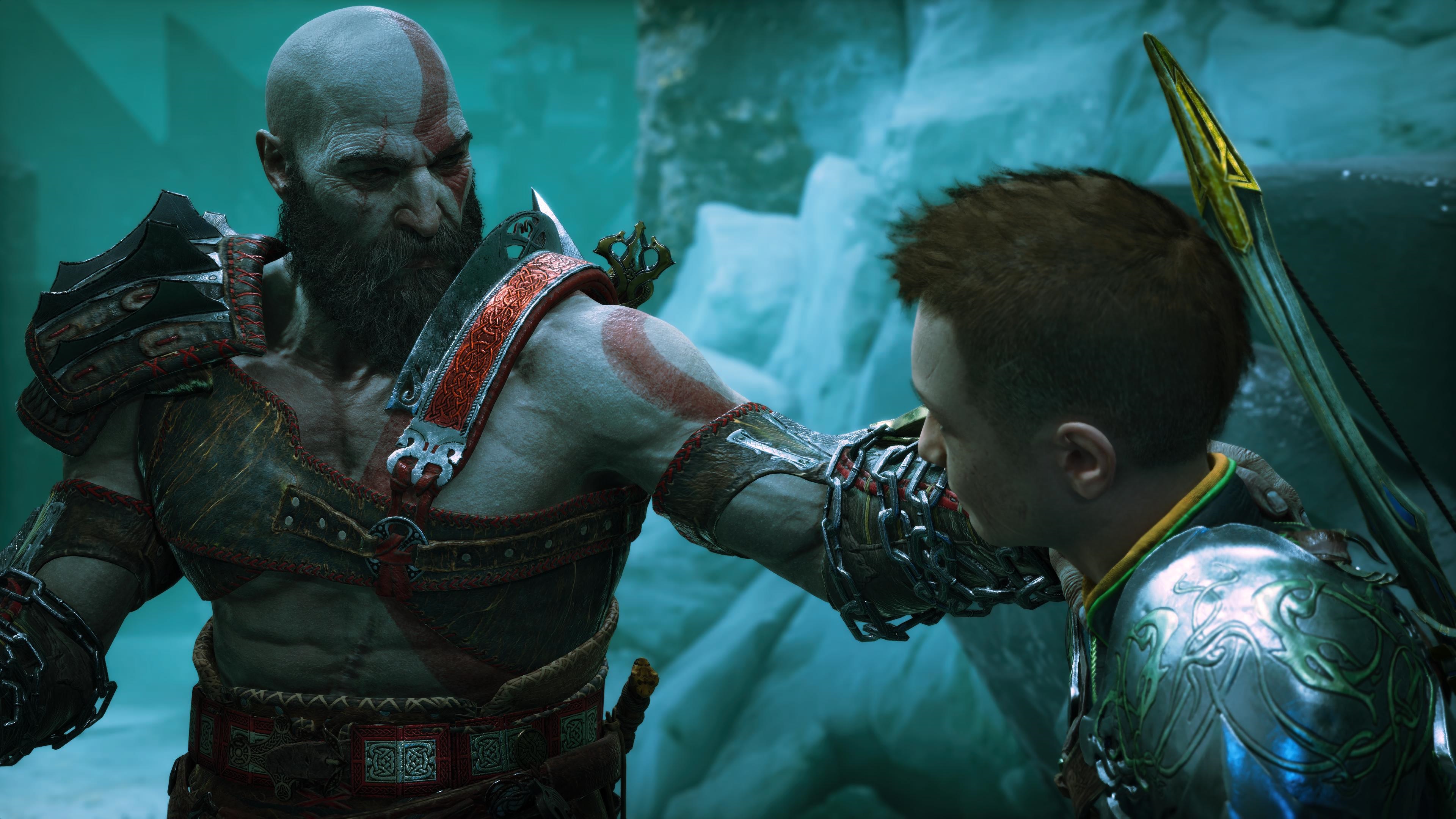
There aren’t a lot of games about masculinity. Make no mistake, there are plenty of games with stereotypically masculine elements or characters, but that’s not what the games are about, in a similar vein to how innumerable games feature guns and swords, but scarcely any games are about violence.
Two games that have tackled that subject are the 2018 God of War and its recent sequel, God of War Ragnarök. Everyone knows that these games from Sony Santa Monica changed up the long-running formula of the God of War franchise, with Kratos accompanied by his young son. The story was given a far more somber tone and emotional focus, spawning numerous jokes that are now the “Dad of War” series. By bringing these changes to a character previously the poster boy for ultraviolence, it’s impossible not to read the decisions as deliberate commentary on masculinity and by extension, what positive masculine struggle and growth can look like.

Extra controller
Keep an extra DualSense controller charged up and when your current one needs a break, you'll be able to keep playing with no issues. They come in a variety of colors like white, black, purple, blue, and red.
It’s a huge shake-up compared to the older titles, which were drenched in constant gore, screams of “ZEEEEUUUUUSSS” and women-as-eye-candy. While it’s untrue there was no character growth at all — the entire point of the ending of God of War 3 is Kratos finally accepting everything he’s done wrong and learning to forgive himself — it’s definitely fair that concepts like “story” and “emotional depth” took the backseat to epic battles with gods and monsters.
I’ll always appreciate those games, but they didn’t work for actually moving the character forward anymore, so the new direction made perfect sense. Games that tackle serious topics are common, but the specific evolution that the God of War series has undergone is truly unique.
I don’t think Sony Santa Monica got enough credit for the particulars of this direction. I’m a huge believer in “show, don’t tell” and God of War uses this extremely well. There’s a careful use of physical touch to convey character depth that I haven’t seen in many other games. Early on in the 2018 game, we don’t have to be told how stressful the father-son relationship is, we see it play out.
When Atreus burns his hand while helping to cremate his late mother, the method in which Kratos helps him foreshadows how Kratos is electing to bury pain rather than treat it. He heals Atreus’ wound with a strip of bandages that cover the burn scars on his arms, symbolizing how in turn, he will end up suppressing Atreus’ growth with his own trauma.
While the duo is out hunting just a bit later, after Kratos has spent the trip so far barking orders and staying relatively distant, referring to his son only as “Boy,” Atreus successfully brings down a large stag. Kratos reaches his hand out to touch Atreus but then draws it back. This moment speaks volumes without a single word being said.
Get the latest news from Android Central, your trusted companion in the world of Android
During their travels, we see a mixed bag of messages and growth. Kratos slowly, and carefully grows more physically affectionate as opposed to just being protective, but he also gives some not-so-great advice. At a critical moment, when Atreus is forced to kill another human being in self-defense, his father tells him to close his heart off to the suffering of others. He’s trying to help him, but in doing so causing him to become closed off emotionally entirely, setting up strife later on as Atreus learns of his godly heritage.
Now, obviously, the subject matter is different — I don’t know about anyone else, but I don’t have to deal with the struggles of godhood or the Norse apocalypse in my daily life — but there’s an unmistakable resemblance here to how men are often taught to suppress emotions. Too often, we’re taught to harden ourselves and refuse to be open, to bury any pain and hide away any real sense of feeling. Kratos is scared to repeat the cycle of violence that occurred with his own father, Zeus.
All of this is juxtaposed with one of the last scenes in the game. In Jotunheim, when the two have nearly accomplished their goal, Kratos removes his bandages and openly embraces his son.
Just a few minutes later, as the pair are scattering Faye’s ashes from the highest peak in the Nine Realms, Kratos finally embraces his son without any hesitation. Not only is he emotionally open and moved beyond the scars of his past, but he is physically open as well. It’s a healing, positive sense of masculine growth.
In God of War Ragnarök, we see this trend continue. A huge part of the game’s story is about destiny and fate, what it means to believe in prophecy and whether or not you can change who you are. What is the nature of a thing? Kratos has been prophesied by the Giants to die, while his son Atreus (who is also known as Loki now) will join Odin, All-Father of the Aesir.
In spite of this ominous, simmering conflict, not only is Kratos frequently far more affectionate in holding Atreus close, but he also praises his son, speaking with something akin to warmth in how his son is growing, expressing trust and always using his son’s name. The lone “BOY” barked in the entire game comes as Atreus lashes out to visit Asgard, something that feels like an immediate step back for the progress the two have made so far. Odin then uses this fallout to further prey on Kratos’ innate fears of being replaced as a father, referring to Atreus/Loki as “our boy” and emphasizing the reasons why he’s now staying in Asgard.
At a crucial point in the narrative, it’s revealed by the Norns (the Norse version of the Fates) that there is no destiny, only the choices that gods make. But because they are so stubborn and never change, it’s easy to predict the natural consequences of multiple deific egos and ambitions that stack up. For Kratos to break his fate, he has to change his ways.
As interesting as that is, it’s the particular manner in which breaking the cycle is accomplished that makes this so compelling. Kratos, the god-killer, doesn’t change his fate and live because he gets a shiny new weapon. He doesn’t survive because he’s smarter than Odin, because his rage is greater than Thor’s, or even because he steps up to become a champion for Ragnarök.
He changes his fate when he admits he was wrong.
“Open your heart to their suffering. That is your mother’s wish, and mine as well. Today son, today we will be better,” he tells his son, who is overwhelmed by the innocents caught in the crossfire of war.
When the battle is done and Kratos and Atreus realize they have different paths to walk for a time, Kratos finds a different prophecy on a mural hidden by Faye. She believed he could walk a path that strayed from what the other Giants saw. It’s overwhelming for him, and for the first time in the entire franchise, Kratos cries, because someone believed he could be better.
I love the combat in God of War. The visuals. The epic clashes. The stories. But more than anything, I love the central message that this series has taken and (for the moment) ended on. We can choose to be better.

Samuel Tolbert is a freelance writer covering gaming news, previews, reviews, interviews and different aspects of the gaming industry, specifically focusing on PlayStation on Android Central. You can find him on Twitter @SamuelTolbert
